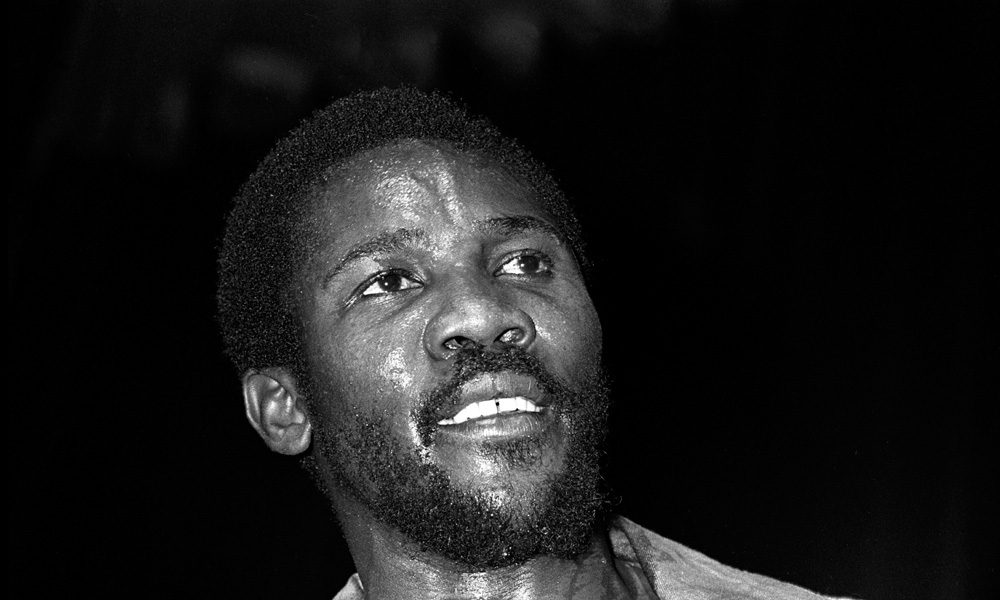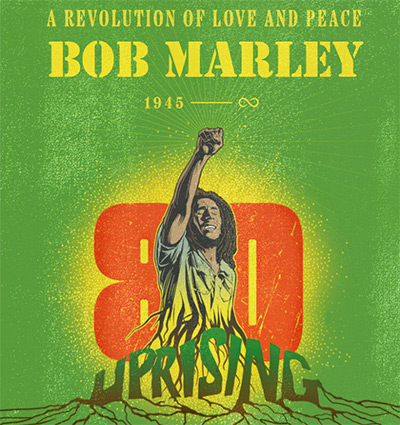Frederick ‘Toots’ Hibbert, Pioneering Ska And Reggae Vocalist, Dead At 77
The trailblazing Jamaican vocalist died in Kingston after contracting coronavirus.

Frederick ‘Toots’ Hibbert, leader of Toots & The Maytals, one of Jamaica’s best known reggae and ska groups, has died after contracting coronavirus. He was 77. Earlier this month, Hibbert was hospitalized after testing positive for the virus.
“It is with the heaviest of hearts to announce that Frederick Nathaniel ‘Toots’ Hibbert passed away peacefully tonight, surrounded by his family at the University Hospital of the West Indies in Kingston, Jamaica,” the band’s Twitter account announced.
“The family and management would like to thank the medical teams and professionals for their care and diligence, and ask that you respect their privacy during their time of grief. Mr. Hibbert is survived by his wife of 39 years, Mrs. D, and his seven of eight children.”
It is with the heaviest of hearts to announce that Frederick Nathaniel “Toots” Hibbert passed away peacefully tonight, surrounded by his family at the University Hospital of the West Indies in Kingston, Jamaica… pic.twitter.com/zOb6yRpJ7n
— Toots & The Maytals (@tootsmaytals) September 12, 2020
Tributes have already been pouring in online following the news of Hibbert’s death. Ziggy Marley wrote: “I spoke w/him a few wks ago told him how much i loved him we laughed & shared our mutual respect. He was a father figure to me his spirit is w/us his music fills us w/his energy I will never forget him.” Mick Jagger posted: “So sad to hear of Toots Hibbert’s passing. When I first heard Pressure Drop that was a big moment – he had such a powerful voice and on stage he always gave the audience his total energy. A sad loss to the music world.”
The news of Hibbert’s passing comes after Trojan Jamaica/BMG recently issued Toots and The Maytals’ Got To Be Tough, their first album of original material in a decade.
A gospel upbringing
Frederick Nathaniel ‘Toots’ Hibbert was born in May Pen, Clarendon, Jamaica on December 8, 1942, the youngest of seven children. His parents were both Seventh-day Adventist preachers, and he grew up singing gospel music in a church choir, which influenced his future vocal delivery.
At age 13, in the early 1960s, Hibbert moved to the Trenchtown neighborhood of Kingston and formed the Maytals, with Ralphus “Raleigh” Gordon and Nathaniel “Jerry” Matthias. The Maytals took their name from Hibbert’s hometown of May Pen.
The Maytals became one of the more popular vocal groups in Jamaica in the 1960s, recording with producers Coxsone Dodd, Prince Buster, Byron Lee, Ronnie Nasralla, and Leslie Kong. This success included winning Jamaica’s National Popular Song Contest three times with songs Hibbert wrote: in 1966 with “Bam Bam,” 1969 with “Sweet and Dandy” and 1972 with “Pomps & Pride.”
In 1964, the group were part of the expanding interest in reggae in the US, notably via Atlantic Records’ recording and release of several dozen ska records. As Billboard reported, this was after label president Ahmet Ertegun heard Jamaican ska for the first time at a party given by the Jamaican government. He and engineer Tom Dowd flew to the island and, wrote the magazine, “in ten days Ertegun and Dowd recorded 40 sides, using Ken Khouri’s Federal Recording Studio. They signed and recorded the Blues Busters, Stranger and Patsy, the Charmers and the Maytals.”
‘Do The Reggay’
Toots Hibbert was one of the first artists to use the word “reggae,” in 1968’s “Do the Reggay.” The track was produced by Leslie Kong and released on Beverley’s Records in Jamaica and Pyramid Records in the UK in 1968. It was the first popular song to use the word “reggae” and defined the developing genre by giving it its name. When the song was released, “reggay” had been the name of a passing dance fashion in Jamaica, but the song’s connection of the word with the music itself led to its use for the style of music that developed from it.
The first Toots and the Maytals album released and distributed by Chris Blackwell’s Island Records was Funky Kingston. Music critic Lester Bangs described the album in Stereo Review as “perfection, the most exciting and diversified set of reggae tunes by a single artist yet released.” Chris Blackwell had a strong commitment to Toots and the Maytals. In a 2018 interview with Red Bull Music Academy, he said, “I’ve known Toots longer than anybody – much longer than Bob [Marley]. Toots is one of the purest human beings I’ve met in my life, pure almost to a fault.”
Toots Hibbert also appeared in the ground-breaking Jamaican film The Harder They Come in 1972. Directed by Perry Henzell and co-written by Trevor D. Rhone, it featured Jimmy Cliff in the starring role of Ivanhoe “Ivan” Martin. An international success, the movie has been described as “possibly the most influential of Jamaican films and one of the most important films from the Caribbean.” The film’s soundtrack included the Maytals’ 1969 hit song “Pressure Drop” and its inclusion helped launch the band’s career outside Jamaica.
The song was also included on the Maytals’ 1970 album, Monkey Man, which led to the Maytals signing a recording contract with Chris Blackwell’s Island Records in 1971. Thereafter, they became the biggest act in Jamaica and went on to enjoy international recognition.
Blackwell initially concentrated on the UK market, where previous Jamaican acts had had success. The group released three best-selling albums produced by Warrick Lyn and Chris Blackwell and enjoyed international hits with Funky Kingston in 1973 and Reggae Got Soul in 1975. Following the release of Reggae Got Soul, Toots & the Maytals were invited to open for The Who during their 1975–76 North American tour.
A late 70s resurgence
Toots and the Maytals’ compositions experienced a resurgence of popularity in 1978–80 during the reggae punk and ska revival period in the UK. The Specials covered “Monkey Man” on their 1979 debut album and The Clash did “Pressure Drop” for the B-side of their 1979 hit, “English Civil War.” During this period Toots and the Maytals were also included in the lyrics to Bob Marley & the Wailers’ song “Punky Reggae Party,” which said: “The Wailers will be there, the Damned, the Jam, the Clash, the Maytals will be there, Dr. Feelgood too.”
The group split up after releasing the 1981 album Knockout, though In 1982, Toots & The Maytals’ “Beautiful Woman” reached No.1 in New Zealand. Hibbert, however, continued to record as a solo artist throughout the 1980s. In the early 1990s a new line-up of the Maytals coalesced. In February 1990 Toots and the Maytals performed on VH1’s New Visions World Beat, guest-hosted by Nile Rodgers. The group continued touring and recording successfully, with two appearances at Reggae Sunsplash in the mid-1990s.
In 2004, the group released True Love, an album of re-recorded versions of their earlier hits in collaboration with fellow musicians including Bonnie Raitt, Willie Nelson, Eric Clapton, Keith Richards, Trey Anastasio, No Doubt, Ben Harper, the Roots, and Shaggy. The album received critical acclaim from outlets including NPR and Rolling Stone. The True Love album won the Grammy Award that year for best reggae album.
An all-star documentary
In 2011, director George Scott and producer Nick De Grunwald released the documentary Reggae Got Soul: The Story of Toots And The Maytals, which was featured on the BBC. Described as “The untold story of one of the most influential artists ever to come out of Jamaica,” it had appearances by Marcia Griffiths, Jimmy Cliff, Bonnie Raitt, Eric Clapton, Keith Richards, Willie Nelson, Anthony DeCurtis, Ziggy Marley, Chris Blackwell, Paolo Nutini, Sly Dunbar, and Robbie Shakespeare.
In the wake of the documentary, the 2012 live album Unplugged On Strawberry Hill rewarded Hibbert with another Grammy nomination. More recently, meanwhile, Toots & The Maytals turned in acclaimed performances at some of the world’s biggest festivals, including high-profile slots at Coachella, Glastonbury and WOMAD during 2017.
Much of Toots Hibbert’s recorded output reflected his Christian upbringing. Hibbert has been known to write about Rastafarian religious themes as well. In an early Maytals song, “Six And Seven Books of Moses” from 1963, he addressed the folk magic of obeah and its use of the occult literature of Biblical grimoires, such as the Sixth and Seventh Books of Moses.
“Black gold of Jamaica”
Toots & the Maytals’ cultural and creative significance was not fully reflected in their chart history. In the US, their highest album placing was No.157 for 1976’s Reggae Got Soul, and remarkably they never had a UK chart album at all. But their worth was fully appreciated by their admirers in the media and the general public. In 1972, Melody Maker described the Maytals and Marley and the Wailers as “Black gold of Jamaica.”
In 1976, Hibbert told the NME: “My song tell people to have love to the people; to change the people; show people the right way. Show ’em to know themselves. Know them bredda. You ’ave to know yourself first, before you could know me.”
Listen to the best of Toots & The Maytals on Apple Music and Spotify.













Kevin L
September 12, 2020 at 12:14 pm
“Peace Perfect Peace”
Give it a listen.